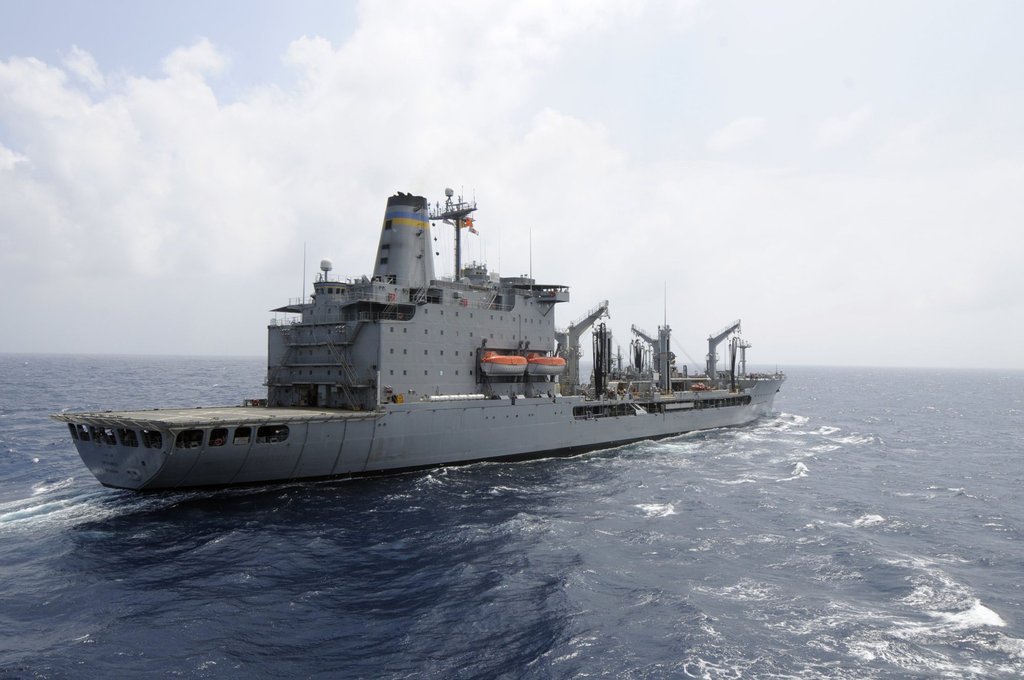Dammam- Admiral Kevin M. Donegan commander of the United States’ Fifth Fleet told Asharq Al-Awsat newspaper that Houthi insurgents, al-Qaeda and ISIS represent the greatest threat to naval freedom of waters surrounding the Arabian Peninsula, which comprises the three prominently vital passages for global economy.
Donegan added that the U.S. navy is aware of the capacity of Houthis and recognizes their wish to hamper naval movement, in addition to knowing how that would reflect over world-wide economy, which is why the IMCMEX naval drill focuses especially on addressing that threat.
Donegan’s declarations were made after concluding the IMCMEX drill, which is considered the world-wide most comprehensive naval drill staged by the U.S. navy and includes 36 countries, across the Arabian Gulf, Strait of Hormuz, Arabian Sea, Gulf of Aden, Strait of Bab-el-Mandeb, the Red Sea and the Suez Canal. The military naval drill is for ensuring the protection of all the naval passages.
The drill coincided with the U.S. Fifth Fleet’s commandership emphasizing that the U.S. has not directed its attention away from the Middle East, as to confirm the vital character to the region and the U.S’s commitment to its security and acknowledgment to it being a principal factor to world security.
Adm. Donegan labeled Houthis, alongside the score of organizations as a threat to naval freedom of vital world-wide economic water pathways.
United States Fifth Fleet commandership considered that the threat of true terrorism affects ports and naval infrastructure all across the region; which is why
it would not be wise, on a security level, to negotiate or compromise any of the naval exits which are subject to the threat.
United States Fifth Fleet commandership pointed out that the force evaluation of the powers working side-by-side with the U.S. – who are a part of the naval common forces, partners with the coalition and allies- confirms that no efforts are being saved and that the navies are continuously active for the protection of trade routes and oil pumping into the region.
Despite the existence of a real threat, the U.S. has not shifted its focus into the region, clarifying that piracy is still a source for concern affecting regional waters surrounding the Arabian Peninsula; which is why counter-piracy and anti-trafficking operations are frequently arranged and carried out on a daily basis by partners of the coalition.
Achievement in the arena fighting piracy was established on international coordinated cooperation and U.S. efforts on countering piracy in the region. The success rate has been registered based on no launched pirate attacks being reported successful since 2012, the fleet leadership added.
U.S. Fifth Fleet officials confirmed that the contribution of over thirty countries from all across the six continents into the annual IMCMEX drill stands to prove the continuing desire for expanding the capacity and disposition of employment among countries, armies and industries.
Expansion guarantees naval freedom, flow of free trade and the preservation of security from threats posed by pirates, terrorist organizations, governmental organizations and non-governmental organizations.
